Ask Ethan # 96: Is the multiverse theory scientific?
It is difficult to build models of inflation that do not lead to the multiverse. But not impossible, and I think that there is a field for research here. But most inflation models lead to the multiverse, and evidence of inflation will push us to take the idea of the multiverse seriously.
- Alan Guth
Periodically, I get a question that touches the farthest limits of what we can learn, imagine, or what we can build a theory about. Questions about the beginning and end of the universe, the laws of nature and science itself. This week, the honor to ask a question was given to John Pashkov:
You wrote that for a revolutionary scientific theory three things are needed, and the third in a row is that it can be verified and confirmed or refuted. At the same time, the multiverse theory seems to fail this test.
Let's talk about this: the three criteria, the multiverse, where it comes from, and whether it meets the high standards of scientific theory.
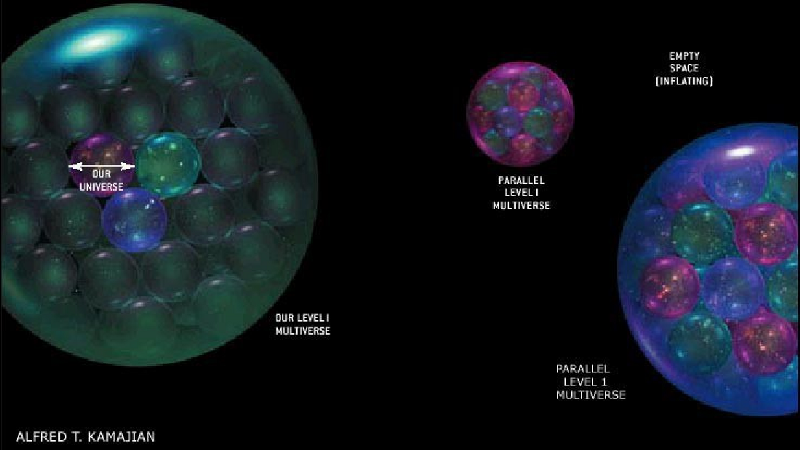
Last week, I identified three components of any revolutionary scientific theory:
')
1. Play all the successes of the previous one.
2. Explain new results that contradict the old.
3. Make new, verifiable predictions that have not previously been verified, and which can either be tested and justified, or rejected.
This is how in almost all scientific disciplines there was a shift, from “simple” physics to “complex” biology.
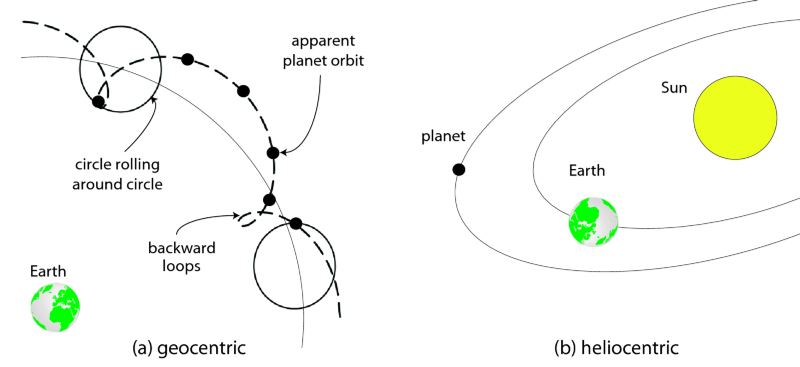
Geocentrism, with its epicycles, ekvant and deviants, was replaced by Keplerian heliocentrism and elliptical orbits, which then expanded to Newtonian gravity. She explained not only the location and motion of the planets, but also the moons of Jupiter, the phases of Venus, the eccentric orbit of Mars, and made new predictions on the periodicity and return of comets.
Hundreds of years later, Newtonian gravity could not predict the characteristics of the orbit of Mercury, and it was Einstein’s General Theory of Relativity that not only reproduced Newton’s successes, but also the anomalies of Mercury’s orbit, and made a verifiable prediction on the curvature of starlight by sources of gravity. And just a few years later, the GTR was confirmed, and we got a new, full-fledged scientific revolution.
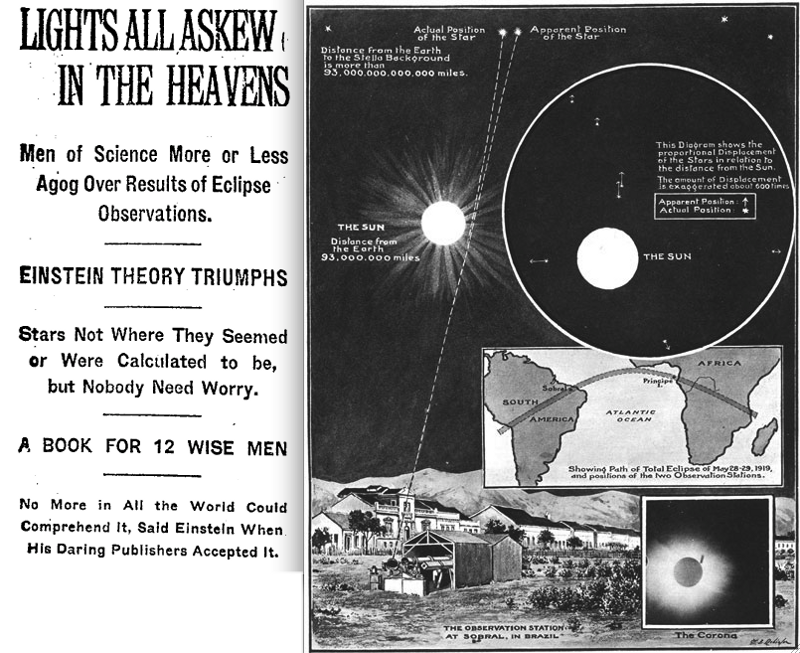
For biologists, Darwin's theory, which was replaced by DNA discovery, was an excellent example. Science is moving forward in just this way - not only refuting previous attempts, but also expanding in order to better describe the entire spectrum of observable phenomena of the Universe.
And where did the multiverse come from, and what is it? To understand, let's start with our understanding of the universe. By it, I mean the observable Universe - everything that we can see, measure and with which we can interact.
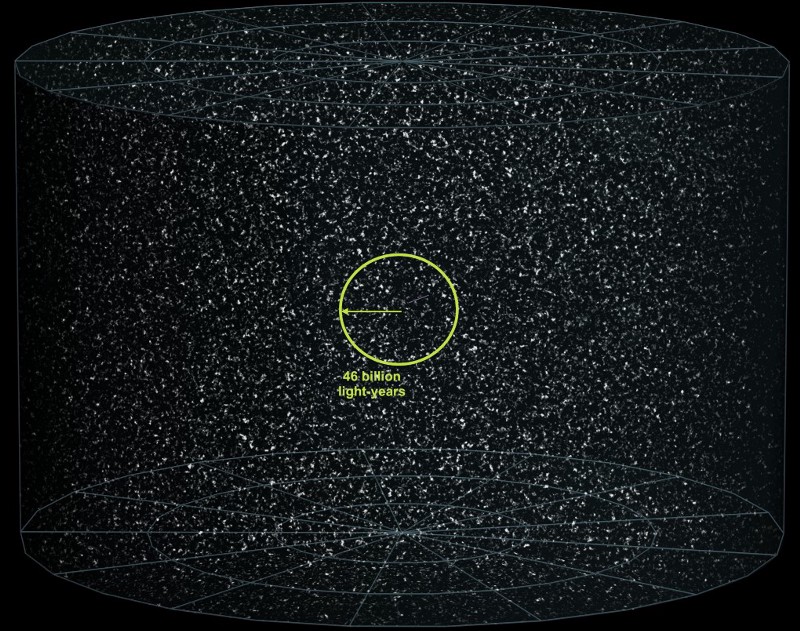
Wherever we look in the sky, we see stars and galaxies, joined together in a giant cosmic web. But the further we look into space, the farther it is in the past. Remote galaxies are younger and less developed. There are fewer heavy elements in their stars, they look smaller because they were subjected to fewer associations, more spiral spiral galaxies and less elliptical ones (the latter are formed by mergers), and so on. If we get to the limits of our visibility, we will find the earliest stars in the Universe, and behind them - an area of darkness, where there is only light left from the Big Bang.
But the Big Bang itself, which happened everywhere at the same time about 13.8 billion years ago, was not the beginning of space and time. He was the beginning of the observable universe. Prior to this, cosmic inflation existed with an exponentially expanding space filled with energy inherent in space-time itself.
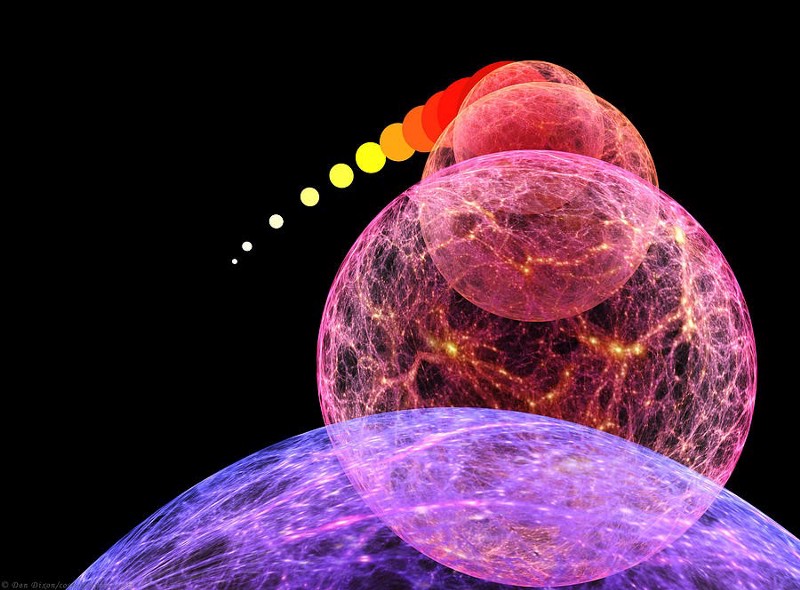
Cosmic inflation is an example of a theory that has replaced the previous one. She is:
1. Not inconsistent with all the successes of the Big Bang and embraced all of modern cosmology.
2. Explained a number of issues that are inaccessible to the Big Bang, including the uniform temperature of the Universe, the spatial plane, the absence of high-energy relics like magnetic monopoles.
3. Made new predictions, verified through observations, four of which have already been confirmed.
But one of the consequences of the theory was something about which we do not yet know whether we can confirm it: the multiverse.

Due to inflation, space expands at an exponential rate. That is, what existed before the Big Bang has become much, much, much larger than it was. This is good - it explains the uniformity and size of the universe. With the end of inflation, the Universe is filled with matter and radiation, and this we observe as the Big Bang. But here's what's strange.
According to viable mechanisms by which inflation is sufficient to create the observable universe, there are other areas of space surrounding ours (in which inflation has ended) where inflation has not ended so quickly. Which leads to the phenomenon of "eternal inflation."
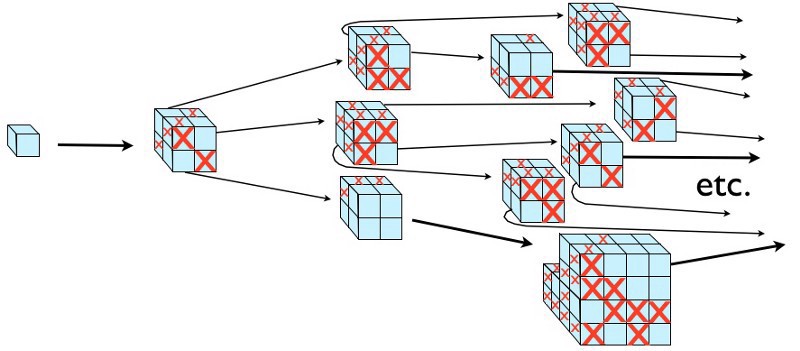
Thanks to quantum mechanics, inflation has a chance to end in any area at any time ... But there is also a finite probability not to end in any area at any time. Where it ends, the Big Bang and the Universe appear - the same as ours (in the picture they are marked with red crosses).
Where inflation does not end, the space expands, leading to the emergence of regions whose big explosions are causally separated from ours, and regions where inflation will continue.
And so on.
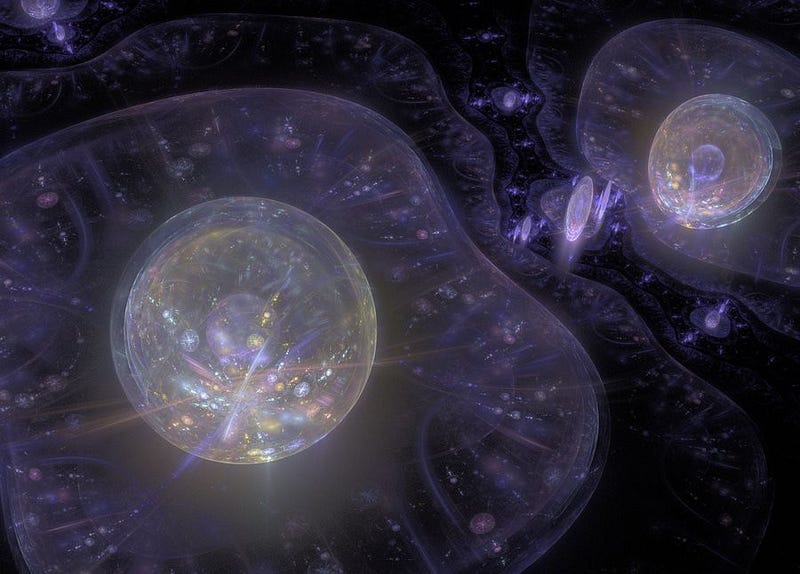
We do not know much about these other universes:
• Do the local laws of physics, particles, fundamental constants coincide with ours?
• Does their density and other properties match ours?
• Are we confused in any quantum way with other universes?
Maybe yes, maybe not. A conservative approach suggests that the answers to these questions should be “yes”, “yes” and “no”, respectively. But now we come to the main question of the reader: is this theory scientific?
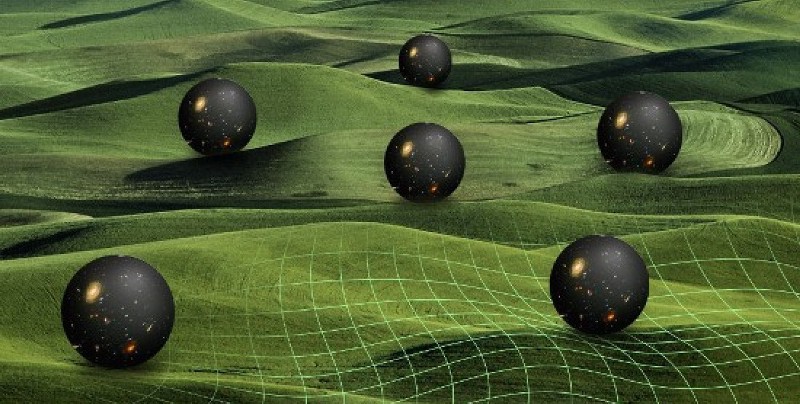
The multiverse is not a scientific theory in and of itself. These are the theoretical consequences of the laws of physics according to their current interpretation. It is possible that even the inevitable consequence - if you have an inflationary Universe, controlled by quantum physics, you will have to face some phenomena.
But the multiverse does not necessarily explain everything that happens in our Universe. It does not solve our current problems (calling such words as "landscape", "vacuum energy", "anthropic principle", "cosmological constant", you just do not understand what it means to "solve problems"). Worst of all, she makes no accurate predictions of what we might observe.
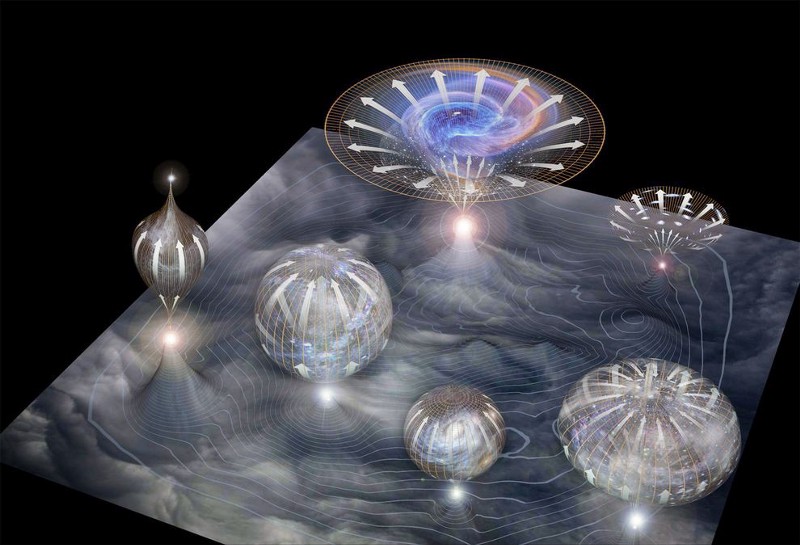
And what does all this mean? Apparently, the multiverse - if we accept the correctness of our understanding of the universe and its history - exists. Outside of the observable part of the Universe, there may be a lot of other things, and there are probably other universes that began after their Big Bangs, and they will not be able to interact with ours.
But it also means that it is beyond verifiability in principle. The only way I can imagine is catastrophic: to restore the state of inflation, to confuse several observers scattered across different regions of inflation, and to observe how it ends and how different things arise from it at different points in time, assuming that you can understand when you break quantum entanglement (and this is still unknown).
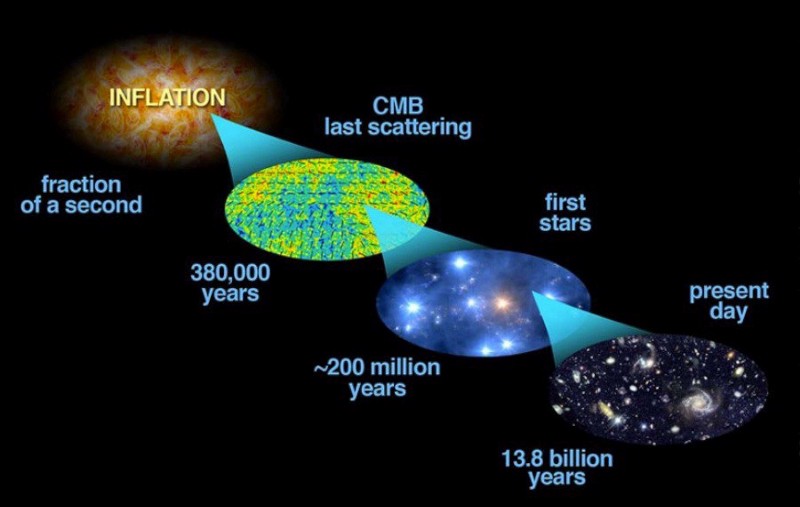
And for this, by the way, it is necessary to survive the Big Bang, in which I wish you good luck. But if you do not succeed, then I will join John and other skeptics: a multiverse may be an interesting and even inevitable result of physics. But until we can test it scientifically — and it may happen that we never can — it is not good enough for science. This is a theoretical assumption that makes sense, but it is not a scientific theory, and due to the limitations of the Universe, it can never become one.
What is this? It can become a new class to those we are beginning to understand: the first physically motivated "metaphysics" that we discovered. For the first time, we understand the limitations of the universe, its information, and what it means for knowability. And outside and after that? Perhaps it is there that metaphysics begins, and there the multiverse, perhaps, will remain forever.
Thank you for the philosophical question, and I hope you enjoyed this release! Send me your questions and suggestions for the following articles at startswithabang at gmail dot com.
Source: https://habr.com/ru/post/398021/
All Articles